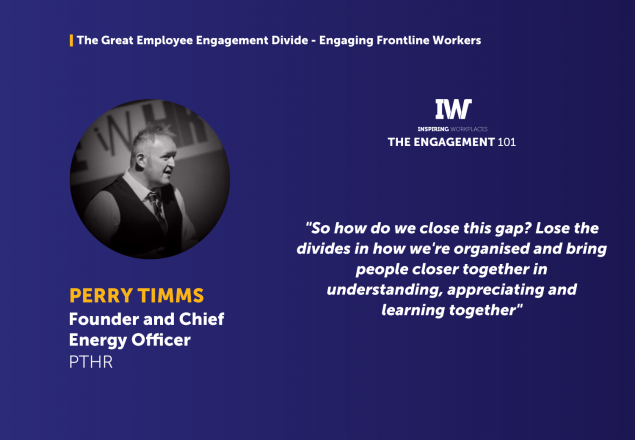
12th September 2024
How to Build a Workplace Culture That Motivates

Building a motivated workforce requires continuous effort, focusing on meaningful recognition, clear communication, trust in leadership, manager support, and employee well-being. By addressing these areas, businesses can boost engagement, performance, and profitability. Motivation improves workplace performance by 20% and increases profitability by 21%, making it essential for long-term success.
This article was written by Grace French and published in People Management.
When you think about the ideal employee mindset, key attributes will undoubtedly spring to mind, from hard working and dedicated to curious and motivated. Motivation will be non-negotiable for business leaders. After all, who would hire someone knowing they won’t be motivated?
Today, businesses are facing a host of significant challenges, including skills shortages, recruitment and retention challenges, and the fallout from Brexit and Covid-19. So leaders are having to ask employees to dig deeper. But the hard truth is that, globally, only 15 per cent of employees feel motivated.
Motivation is critical – when employees are motivated, they perform 20 per cent better. But, in reality, only 23 per cent of employees are engaged worldwide, costing the global economy $8.9trn annually. So how can business leaders bridge this gap to foster a culture of motivation that fuels individual and business success?
Meaningful recognition
Recognition is intrinsically linked to motivation. Research shows 69 per cent of employees who feel recognised work harder, and companies that highly value their employees increase revenue by up to 682 per cent. Sounds simple enough. However, 40 per cent of today’s employees report feeling underappreciated.
Leaders must focus on ensuring every employee, no matter their level, feels recognised:
- First, listen to how people are feeling and what would make them feel valued. It’s dangerous to build a culture based on assumptions, and recognising people in a way that doesn’t resonate with them risks making them feel misunderstood.
- Include clear measurements of success in career management frameworks – and celebrate people for achieving these.
- Co-create an effective recognition programme with your employees. For example, verbally celebrate people in company meetings or reward those who perform exceptionally.
Clarity and transparency
An overwhelming 92 per cent of employees say trust in leadership is essential for motivation. However, only 40 per cent of employees are aware of the company’s goals, strategies and tactics. This diminishes both trust in leadership and motivation – how can you be motivated if you don’t know what you’re working towards? Unlocking clarity in someone’s role can increase motivation and engagement by 55 per cent, so leaders should:
-
Listen: gauge how well employees understand and buy into your goals.
-
Host an all-company session to clearly explain and interactively explore who you are, why you exist and where you’re focusing. Crucially, encourage everyone to actively consider their role in achieving your vision.
-
Induct all new employees on your goals, strategies and tactics.
-
Check in regularly (for example, quarterly) so people can ask questions about the direction of the business.
Read the article in full here: How to build a motivational workplace culture
The Inspiring Workplaces Awards are open!
3 ways to be Recognised: Organisations, Individuals and Vendors.






